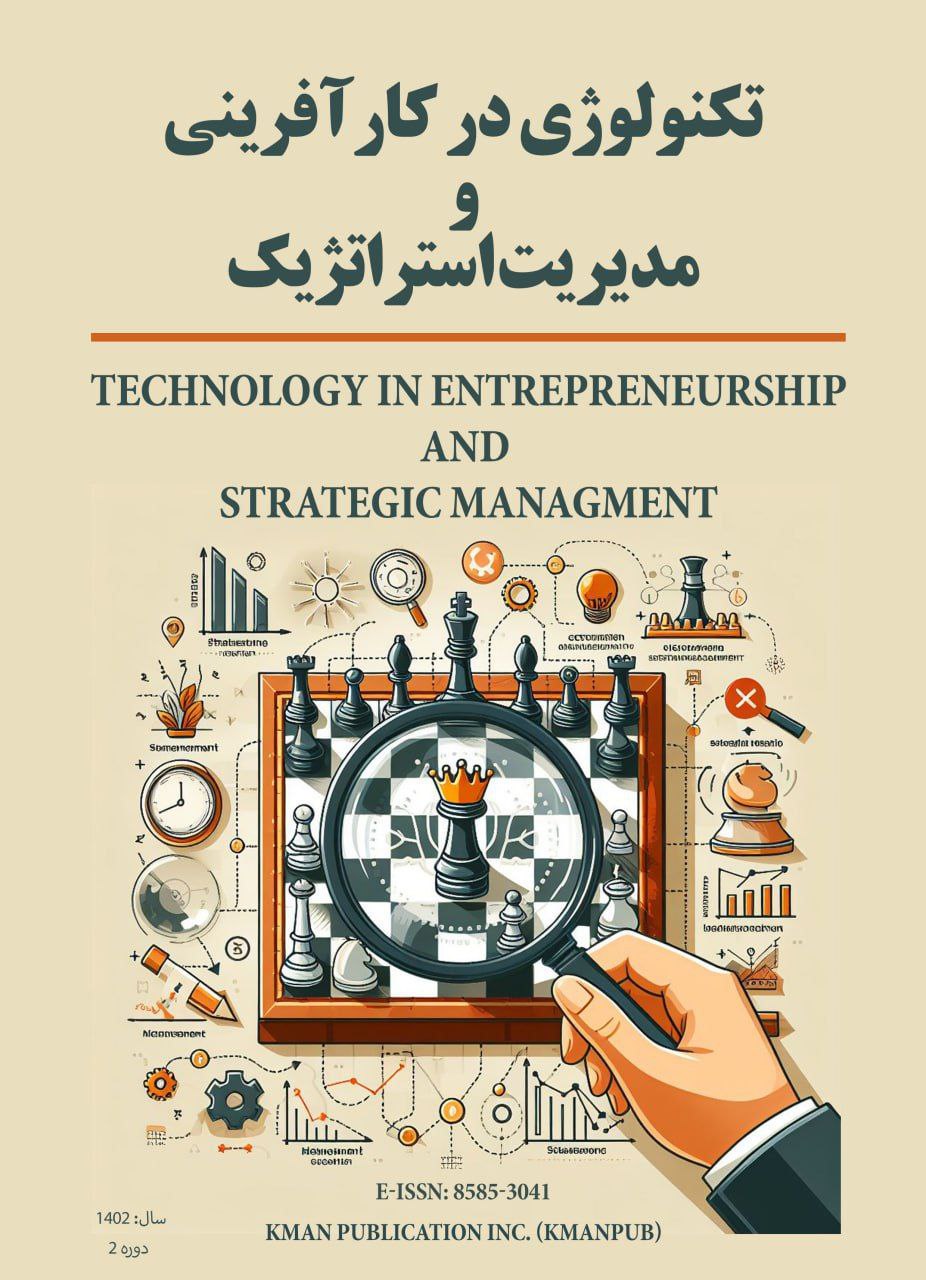Identification of the Dimensions of Policymakers' Competency Model in the Security Domain
Keywords:
Competency, Policymakers, Security DomainAbstract
The present study was conducted to identify the dimensions of the competency model of policymakers in the security domain. This research is exploratory in terms of purpose and employs a qualitative method. The dimensions and indicators of policymakers were determined through thematic analysis to identify the dimensions and competencies of policymakers. The statistical population of this part of the study consisted of written resources related to policymakers in the provinces of Isfahan and Chaharmahal and Bakhtiari, as well as expert policymakers with at least 10 years of experience. Sixteen individuals were purposefully selected as the sample. Ultimately, the policymakers' competency model in the security domain was identified, comprising six dimensions: (1) expertise in policymaking, (2) consulting with others and considering the opinions and suggestions of experts, (3) impartiality and avoidance of personal gain, (4) commitment and adherence to the system, (5) attention to public interests, and (6) understanding security issues. Additionally, seventy policymaking competencies were extracted.
Downloads
References
Abbasabadi, H., Kord, B., & Imani, A. (2022). Identifying Dimensions and Designing an Optimal Evaluation Model for Public
Policies in Iran with a Good Governance Approach. 1st National Conference on Theoretical Approaches and Modern
Technologies in Administrative Sciences,
Abbasi, H., & Daneshfard, K. (2021). The Pattern of Citizen Participation in the First Stage of Public Policy (Identification of
public Issues). Strategic Management Studies of National Defence Studies, 11(42), 270-247.
https://smsnds.sndu.ac.ir/article_1463_c16653d150382208c221fc31a3e53cbc.pdf
AlRaeesi Eman Jasim, H., & Ojiako, U. (2021). Examination of Legal Perspective of Public Policy Implementation on
Construction Projects Arbitration. Journal of Legal Affairs and Dispute Resolution in Engineering and Construction, 13(3),
https://doi.org/10.1061/(ASCE)LA.1943-4170.0000474
Ana, Kustiawan, I., Ahman, E., Zakaria, S. Z. S., Muktiarni, M., Dwiyanti, V., Saripudin, S., & Kahoerunnisa, I. (2020).
Defining Vocational Teacher Competencies in Industry 4.0 From the Perspective of Policymakers. Journal of Engineering
Education Transformations, 34(0). https://doi.org/10.16920/jeet/2020/v34i0/157884
Angez-e-Ghods, A., & Abdi, B. (2024). Designing an Iranian-Islamic Model of Public Policy: Explaining the Role of
Specialized Institutions. Scientific Quarterly of Islamic-Iranian Progress Model Studies, 12(1), 219-258.
Blacksmith, N., Behrend, T., Dalalb, R., General, T. L., & Hayes. (2019). Mental ability and decision-making competence:
Theoretically distinct but empirically. Personality and individual differences. https://doi.org/10.1016/j.paid.2018.10.024
Cave, E., & McKeown, P. (1993). Managerial Effectiveness: The Identification of Need. Management Education and
Development, 24(2), 122-137. https://doi.org/10.1177/135050769302400202
Esmaili, M. R., Sepahvand, R., & Vahdati, H. (2016). Identifying the Competencies of Islamic Consultative Assembly
Representatives Using the Fuzzy Delphi Method. Journal of Public Administration Perspective, 7(2), 105-126.
https://jpap.sbu.ac.ir/article_95704.html
Ghorbani, M. H., & Vahdani, M. (2016). Designing a Model of Competences of Entrepreneurs in Iran’s Sports Industry. Sport
Management Studies, 8(39), 205-228. https://doi.org/10.22089/smrj.2016.890
Hamidi, A., Faghihi, A., & Teimoornezhad, K. (2024). Identifying and Ranking Factors Affecting Policymaking of Public
Administrators' Education. Public Management Researches, 16(62), 63-96. https://doi.org/10.22111/jmr.2022.42740.5807
Mobini Dehkordi, A., Ahmadi, H., & Delavar, A. (2018). Designing strategic entrepreneurship competencymodel for the
country senior managers. Interdisciplinary Studies on Strategic Knowledge, 2(7), 127-150.
https://issk.sndu.ac.ir/article_312.html
https://issk.sndu.ac.ir/article_312_944fde4c616e8d245684f92e59e4e9e1.pdf
Naderi, G. (2020). Examining competency in the policymaking system of the Islamic Republic of Iran in theory and practice
(with an emphasis on the legislative and executive branches). Islamic Government Quarterly, 24(4), 157-184.
https://mag.rcipt.ir/article_110618.html
Sakib, M. N., Rabbani, M. R., Hawaldar, I. T., Jabber, M. A., Hossain, J., & Sahabuddin, M. (2022). Entrepreneurial
Competencies and SMEs’ Performance in a Developing Economy. Sustainability, 14(20).
Shojaei, A. A., Arefi, M., Fathi Vajargah, K., & Shams Morakani, G. (2019). Designing an Entrepreneurship-based
Competency Model for Graduates in Educational Sciences. Journal of Science and Technology Policy, 12(1), 77-88.
Downloads
Published
Submitted
Revised
Accepted
Issue
Section
License
Copyright (c) -1 Journal of Technology in Entrepreneurship and Strategic Management (JTESM)

This work is licensed under a Creative Commons Attribution-NonCommercial 4.0 International License.











